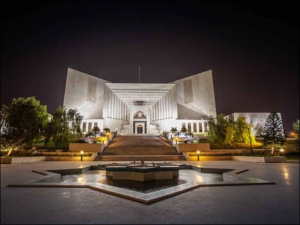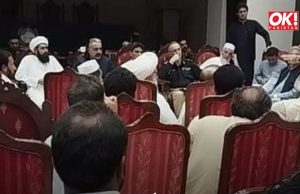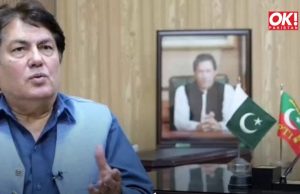The government restricts the rights of the chief judge to act on suo moto and the bench constitution.
The intervention of the court is producing political instability, according to a resolution passed by the NA, which asks the judiciary not to meddle.

ISLAMABAD:
In a flash, the federal government on Tuesday not only made a decision prohibiting the chief justice of Pakistan (CJP) from forming benches or starting suo motu proceedings on his or her own, but it also introduced a bill restricting the unchecked authority of the top judge in the National Assembly for approval.
With reference to the order of the day, NA Speaker Raja Pervaiz Ashraf continued by stating that although the bill pertaining to the CJP’s powers needed to be enacted on Tuesday, the sense of the house advised that the bill be submitted to the law and justice committee for more discussion.
The Supreme Court (Practice and Procedure) Act, 2023, was approved by the federal cabinet on Tuesday, and the proposed measure was then swiftly introduced in the National Assembly in the presence of the prime minister, who had returned to the session after chairing the cabinet meeting.
In response to the Supreme Court’s decision to order elections in Punjab and Khyber-Pakhtunkhwa within 90 days of their dissolution, among other decisions, the federal government has decided to restrict the CJP’s ability to take suo motu notice as well as his ability to form benches on his own through the proposed bill.
The federal cabinet requested that three Supreme Court justices decide whether the court should commence suo motu proceedings in a given case at the meeting, amending the CJP’s suo motu powers to declare that the nation’s top judge cannot automatically initiate such proceedings.
According to the proposed law’s section 2 (constitution of benches), “every cause, appeal, or matter before the Supreme Court shall be heard and decided by a bench composed of the chief justice of Pakistan and two senior most judges, in order of seniority,” with the additional provision that “decisions of the committee shall be by majority.”
Every subject involving the exercise of original jurisdiction under paragraph (3) of Article 184 (original jurisdiction by the Supreme Court) of the Constitution is to be brought before the committee established under section 2 for review first, according to section 3 of the proposed law.
It also states that if the committee believes that a matter of public importance involving the enforcement of one or more of the fundamental rights guaranteed by Chapter I of Part II of the Constitution is at issue, it shall appoint a bench consisting of at least three Supreme Court justices, which may also include committee members, to hear the case.
Later, Law Minister Azam Nazeer Tarar stated in NA that while there can be five, seven, or more judges, there shouldn’t be fewer than three. The prime minister and foreign minister Bilawal Bhutto Zardari recently called for regulating the CJP’s suo motu powers, arguing that it should be a collective decision of the SC judges just as the prime minister takes a collective decision through the federal cabinet. This decision by the federal cabinet to restrict the CJP’s powers through legislation is in line with their recent speeches.
To a larger bench of the Supreme Court, and such appeal shall, for hearing, be fixed within a period not exceeding fourteen days, according to section 4 of the proposed legislation, which states that an appeal shall lie within 30 days from a final order of a bench of the Supreme Court who exercised jurisdiction under clause (3) of Article 184 of the Constitution.
The law minister expressed regret that an appeal against the Supreme Court’s ruling in May 2022, wherein it ruled by a majority of 3-2 decisions that defecting lawmakers’ votes could not be counted, is still pending for hearing. The law minister stated in NA that through this section right for an intra-court appeal has been given within a stipulated time.
The decision, as may be noted, resulted in the change of the Punjab government, as the then-chief minister, Hamza Shehbaz, was chosen for the position with the support of 24 PTI dissident MPAs. Yet the Supreme Court’s ruling on the president’s request for an interpretation of Article 63-A had turned the tables on the PML-N and made it possible for Chaudhry Pervaiz Elahi of the PTI to win the election for chief minister of Punjab.




















































